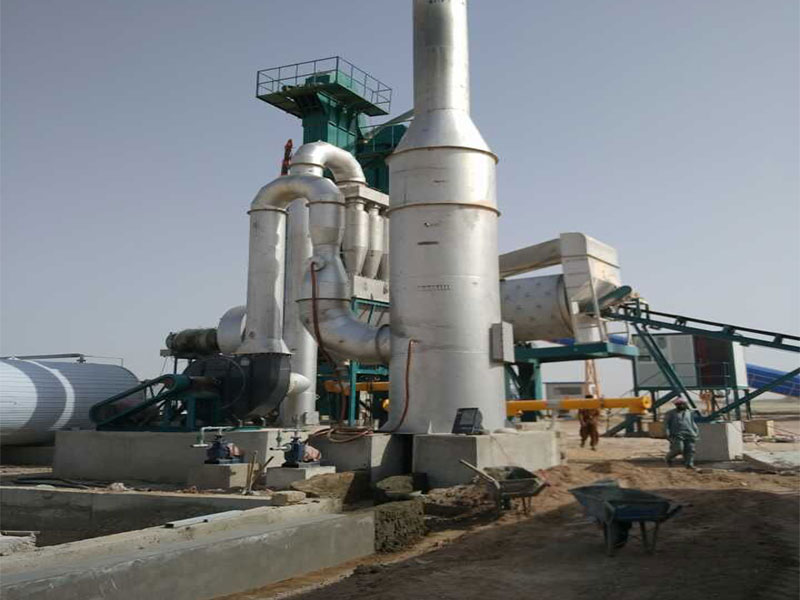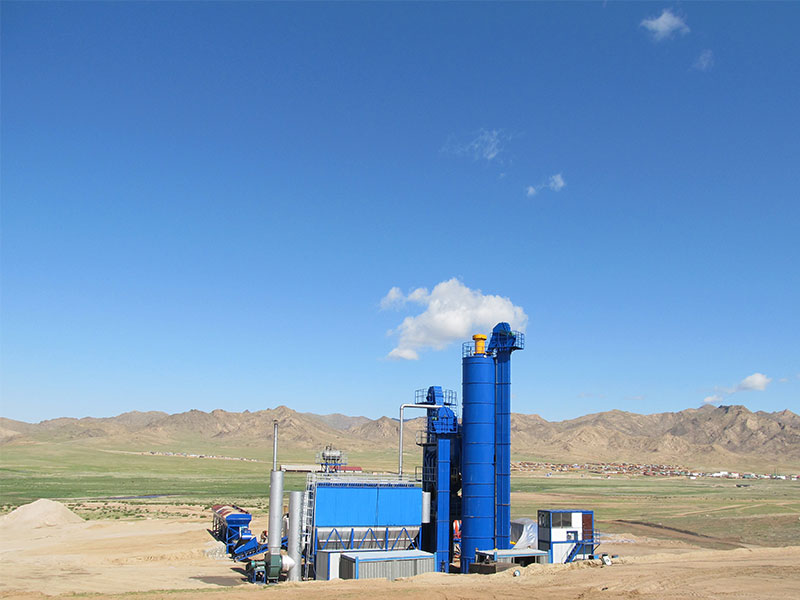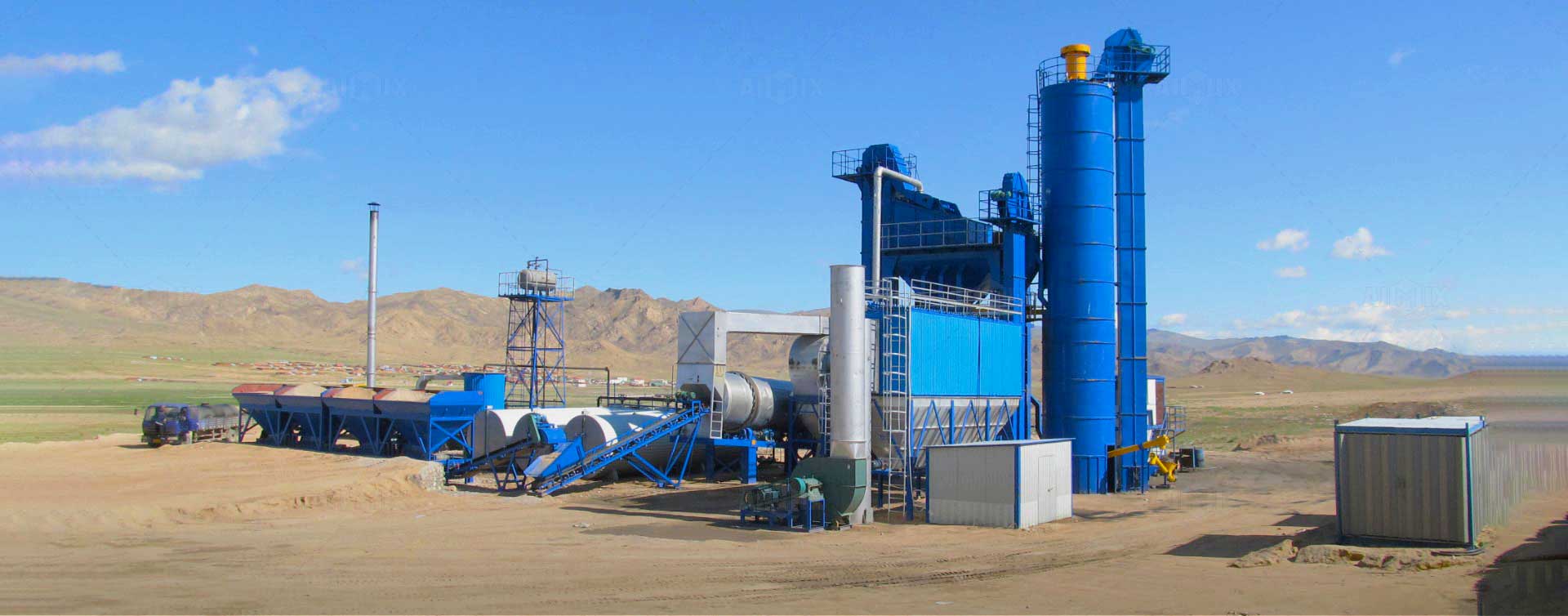Roads are the lifelines of modern civilization, connecting cities, towns, and rural areas, facilitating transportation, commerce, and daily life. Building durable and high-quality roads is essential to ensure safe and efficient mobility for people and goods. In road construction, the asphalt mixing plant plays a pivotal role in producing the asphalt mixture used for road paving.
1. The Basics of Asphalt Pavement
Before delving into the role of asphalt mixing plants, let’s understand the basics of asphalt pavement. Asphalt pavement, commonly known as blacktop or tarmac, is the most widely used material for road surfaces due to its excellent combination of durability, flexibility, and cost-effectiveness.
Asphalt pavement is made up of several layers, including the subgrade (the natural soil), sub-base, base, and surface course. The surface course, also known as the wearing course, is the topmost layer that directly interacts with vehicular traffic and weather conditions. This layer is predominantly composed of asphalt concrete, which consists of aggregates (crushed stone, sand, and gravel) bound together by asphalt binder.

2. Role of Asphalt Mixing Plants
Asphalt mixing plants are specialized facilities designed to produce the asphalt mixture used in road paving. These plants play a pivotal role in the road construction process by:
a. Asphalt Production
The primary function of an asphalt mixing plant with a low asphalt mixing plant price is to produce a consistent, high-quality asphalt mixture. This involves precisely blending the necessary components:
Aggregates: Different sizes and types of crushed stone, sand, and gravel are carefully measured and mixed to create the desired aggregate gradation.
Asphalt Binder: Liquid asphalt binder, derived from crude oil, is added to the aggregates. The binder acts as a glue, binding the aggregates together to form a durable asphalt concrete.
b. Temperature Control
Asphalt mixing plants are equipped with heating systems to control the temperature of the asphalt mixture during production. Maintaining the correct temperature is crucial because it affects the workability and performance of the asphalt.
Hot Mix Asphalt (HMA): For most road paving projects, hot mix asphalt is used. In this process, the asphalt binder is heated to high temperatures (usually between 300-350°C or 572-662°F) before being mixed with the aggregates. This hot mixture is then transported to the construction site for immediate use.
Warm Mix Asphalt (WMA): Some asphalt mixing plants are capable of producing warm mix asphalt, which is mixed at lower temperatures (typically 120-180°C or 248-356°F). WMA offers environmental benefits, such as reduced energy consumption and emissions, and improved workability.
c. Quality Control
Quality control is a paramount aspect of asphalt production. Asphalt mixing plants are equipped with advanced technology and sensors to ensure that the asphalt mixture meets the required specifications, including:
Gradation: The plant monitors the size distribution of aggregates to ensure they meet the specified gradation limits.
Binder Content: Precise control of the amount of asphalt binder is essential to achieve the desired asphalt mixture properties.
Temperature Control: Continuous monitoring of the temperature ensures that the mixture is within the specified temperature range.

3. Types of Asphalt Mixing Plants
There are several types of asphalt mixing plants, and each is designed for specific applications and production capacities. The main types include:
a. Batch Plants
Batch plants produce asphalt in discrete batches. They are suitable for small to medium-sized road construction projects. In a batch plant, each batch of asphalt is carefully mixed and then discharged into a truck for transport to the construction site.
b. Drum Plants
Drum plants are capable of continuous production. They are well-suited for high-volume road construction projects. In a drum plant, aggregates and asphalt binder are continuously fed into a rotating drum where they are mixed and discharged as a continuous flow of asphalt.
c. Mobile Plants
Mobile asphalt mixing plants are designed for flexibility and mobility. They can be transported to remote construction sites, making them ideal for road construction in challenging or remote locations.
4. Benefits of Asphalt Mixing Plants
Asphalt mixing plants offer several key benefits in road paving construction:
a. Efficiency
Asphalt mixing plants can produce large quantities of asphalt quickly, ensuring that construction projects stay on schedule.
b. Consistency
These plants provide consistent and high-quality asphalt mixtures, reducing the likelihood of defects and the need for costly repairs.
c. Customization
Asphalt mixtures can be customized to meet the specific requirements of each road project, taking into account factors like traffic volume, climate, and soil conditions.
d. Durability
Asphalt pavements produced with the help of asphalt mixing plants are known for their durability and longevity, reducing the need for frequent maintenance.
5. Environmental Considerations
While asphalt is a highly recyclable material, the production process does have environmental impacts. Many asphalt mixing plants, including asphalt mixing plant mini, have taken steps to mitigate these impacts through the use of technologies like warm mix asphalt and the incorporation of recycled materials.
Conclusion
In the world of road paving construction, asphalt mixing plants are unsung heroes. They are the heart of the asphalt production process, responsible for creating the durable and smooth road surfaces we rely on daily. These plants ensure that the asphalt mixture meets stringent quality standards, allowing for safe and efficient transportation. As the demands for road infrastructure continue to grow, asphalt mixing plants will remain essential in building and maintaining the roads that connect our communities and facilitate economic growth.

